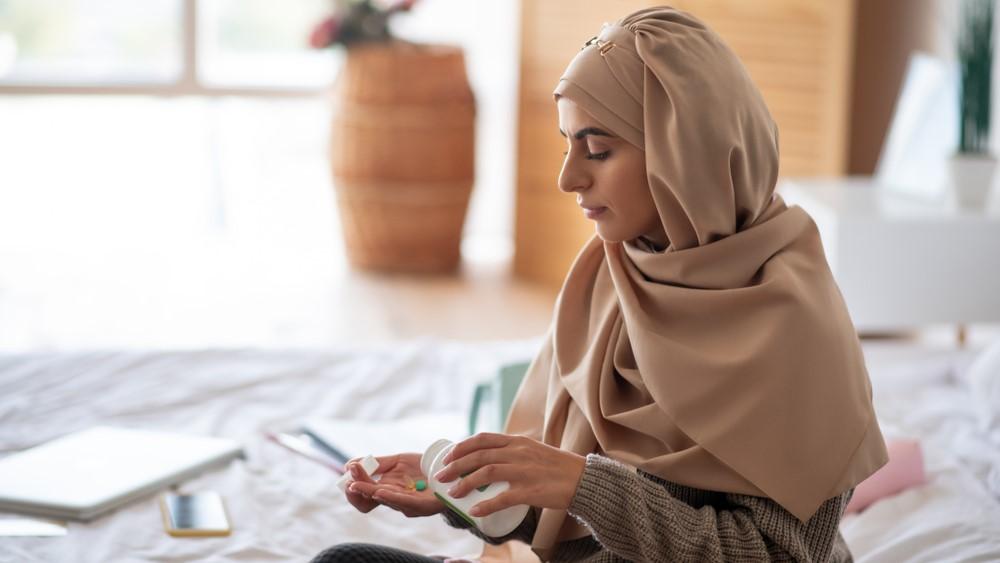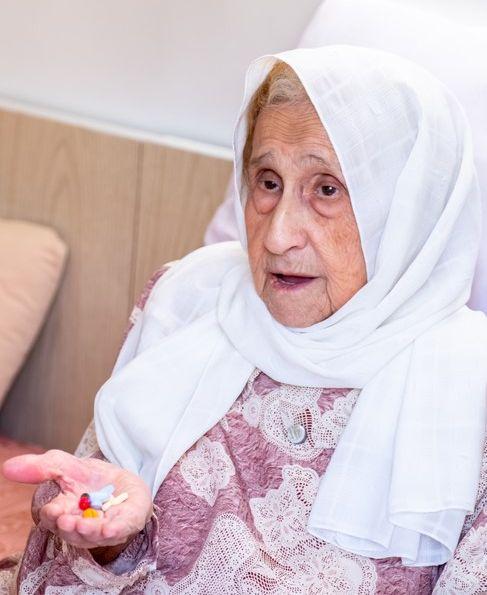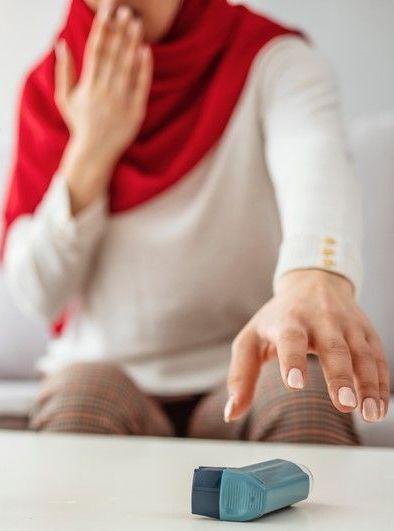
There are many questions in the Muslim community surrounding medication and Ramadan, as it’s not always known whether fasting on medication is permitted.
However, fasting on medication is, in fact, allowed during Ramadan, as long as this is prescribed or advised by a medical professional.
Anyone who takes medication regularly should be assessed by a doctor before partaking in the Ramadan fast. This is particularly important for people with diabetes or unstable chronic conditions. Your healthcare professional will be able to tell you whether you’re physically able to take part in the Ramadan fast, as well as inform you of any potential risks. Similarly, adjustments may need to be made to your medication in anticipation of the fast, and this should once again be reviewed once the fast ends.
If a medical professional advises you that it’s in your best interest not to observe the Ramadan fast, then it’s important to follow this advice. In this instance, you can still pay your dues to Allah (SWT) via Fidya.
If you have a long-term health condition, it’s likely that you’ll be required to take regular medication. As someone with a chronic condition, you’re probably wondering, “can I take medicine while fasting?” and, “does taking medicine break a fast?” Well, if you’re someone who must rely on medication, Ramadan won’t stand in the way of you taking your medicine. Therefore, you can take medication when fasting as long as it’s essential.
Typically speaking, the following medications won’t break your fast:
This list is not exhaustive. You should check with your local mosque about other medications that you may take during Ramadan.
If you have a condition such as epilepsy, you should consult a medical professional about the rescheduling of medication, as well as whether you should be fasting during Ramadan. Typically, epilepsy medication will be taken once or twice a day as it tends to have a long-lasting effect. Therefore, immediately after Suhur and/or Iftar is the best time to consume this medication. With this being said, if you’re subject to an epileptic seizure, you should break your fast immediately, as this could be detrimental to your health.

Anticoagulant medication is typically consumed once or twice on a daily basis, meaning that it’s best to take this medication during Suhur and/or Iftar. It’s important not to adjust the amount of this medication that you’re taking off your own back. Too much of this medication can result in unusual bleeding, whilst too little can lead to blood clots. Therefore, it’s imperative that you take this medication exactly as ordered by your doctor.
Levothyroxine is administered to treat hypothyroidism and is a type of replacement therapy in the form of tablets. During Ramadan, these tablets should be taken before Iftar, once on a daily basis.
High cholesterol medication is typically consumed once daily and so should be taken at either Iftar or bedtime. During the night-time hours, you should also refrain from consuming high quantities of grapefruit juice. This is because grapefruit juice contains statins that can affect your cholesterol, and this can be particularly dangerous when you’re not eating or drinking for long periods of time.

Does using an inhaler break your fast? When it comes to reliever inhalers, you should take this medication whenever the need arises, regardless of whether this is during daylight hours or not. However, when using a preventer inhaler, you should do this at Suhur and Iftar.
High blood pressure medication is best consumed at Suhur and/or Iftar time, whilst diuretics are best taken either with Iftar or two hours following Iftar.
However, beta-blocker medication should be taken on an empty stomach or during Iftar, as taking this medication with food slows down how quickly your body absorbs the substance. Finally, if you take calcium channel blockers, you should avoid herbs that can alter your blood pressure during the night-time hours. For instance, ginger can increase your blood pressure, whilst garlic can lower your blood pressure.
It’s worth noting that the above guidance has been written with a general rule of thumb in mind. This advice should never override the guidance that you have been provided with by medical professionals, and you should always follow the advice of your healthcare advisor.
If you fall sick during Ramadan, you don’t have to fast if you don’t feel well enough to do so. Therefore, you’d be permitted to take painkillers and other general medicines to relieve symptoms. However, in this instance, you would be expected to make up for the days that you missed later on in the year. This can be done at any time aside from Eid, as it’s not permitted for any Muslim to be fasting during this time.
As you know, Ramadan isn’t solely about fasting; it’s also about charitable donations and being the best Muslims that we can be. You can bring yourself closer to righteousness by donating to ILM this Ramadan.